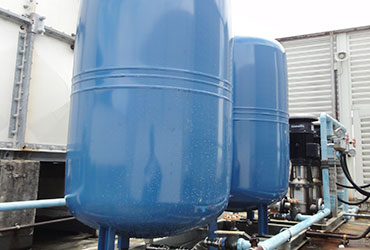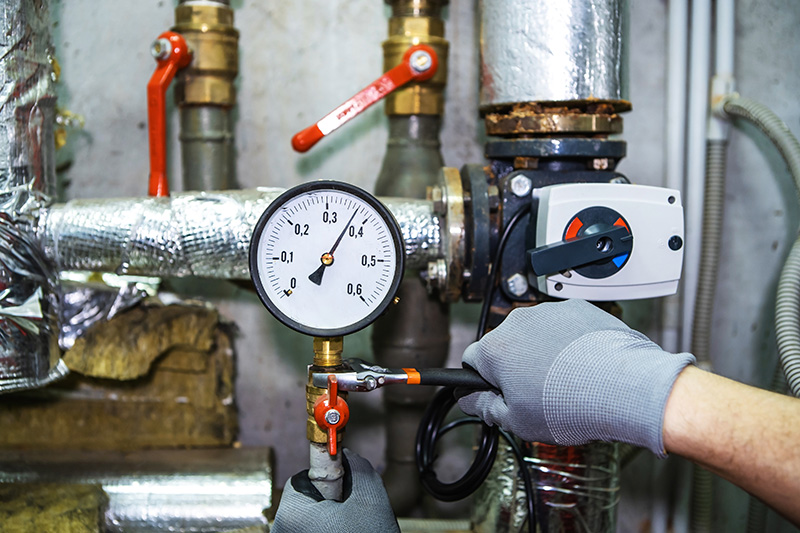Clear Advice for Rectifying Low Water Pressure in Your Home
Clear Advice for Rectifying Low Water Pressure in Your Home
Blog Article
How do you feel in regards to 9 Reasons for Low Water Pressure in Your House?

Low tide stress in your house can be an irritating problem, influencing whatever from bathing to washing recipes. If you're experiencing weak water flow, there are numerous possible reasons and options to explore. In this guide, we'll review common reasons for low water stress and sensible steps to resolve the problem effectively.
Intro to Low Tide Pressure
Low water pressure occurs when the flow of water from your faucets, showers, and other components is weak than common. This can make everyday tasks much more difficult and less efficient. Recognizing the causes of low water pressure is important to finding the appropriate service.
Typical Causes of Low Tide Pressure
Pipe Obstructions
In time, pipes can become clogged with mineral deposits, debris, or particles, restricting the circulation of water. This is an usual problem in older homes with galvanized steel pipes.
Rust
Corrosion within pipes can lead to leaks and minimized water pressure. Rust accumulation can constrict water flow, specifically in maturing plumbing systems.
Faulty Pressure Regulatory Authorities
Stress regulators are responsible for preserving consistent water pressure in your house. If they malfunction, it can result in low water pressure or irregular flow throughout your home.
Metropolitan Supply Of Water Issues
Occasionally, the problem lies outside your home. Community water system concerns, such as main line leaks or maintenance job, can temporarily decrease water pressure in your area.
How to Diagnose Low Water Stress
Inspecting Faucets and Fixtures
Start by testing the water stress at various taps and fixtures throughout your home. If the issue is separated to particular areas, it might show localized troubles.
Evaluating Pipes
Inspect noticeable pipelines for indications of leaks, rust, or obstructions. Pay attention to any type of uncommon noises, such as knocking or rattling pipes, which might indicate issues within the plumbing system.
Consulting with a Plumber
If you're not able to pinpoint the reason for low tide stress, think about employing a specialist plumber to carry out an extensive inspection. They can identify underlying concerns and suggest suitable options.
DIY Solutions to Deal With Low Water Stress
Cleaning Up Aerators and Showerheads
Natural resources can collect in aerators and showerheads, decreasing water circulation. Eliminate and clean these components consistently to improve water pressure.
Flushing Water Heater
Sediment buildup in the hot water heater can limit circulation and reduce efficiency. Flushing the storage tank periodically aids get rid of sediment and maintain optimum performance.
Examining Pressure Regulator
Make certain that the pressure regulator is operating properly. Readjusting or replacing the regulator can aid bring back proper water stress throughout your home.
Clearing Clogs in Water Lines
For minor blockages, attempt utilizing a plumbing snake or chemical drainpipe cleaner to clear blockages in pipes. Beware when making use of chemicals and follow security standards.
When to Call a Specialist Plumber
If do it yourself efforts fall short to resolve the problem or if you think substantial plumbing troubles, it's finest to seek assistance from an accredited plumber. They have the know-how and tools to address complicated issues securely and successfully.
Preventive Measures to Maintain Water Pressure
Normal Upkeep
Schedule routine upkeep for your plumbing system to prevent problems such as deterioration, leakages, and obstructions. Dealing with small troubles early can aid avoid more substantial repair services later.
Installing a Pressure Booster
Take into consideration mounting a pressure booster pump to boost water pressure in locations with regularly reduced flow. This can be especially beneficial for multi-story homes or properties with high-demand components.
Surveillance Water Usage
Bear in mind water usage practices and stay clear of ill-using the plumbing system. Basic changes, such as shocking showers and washing lots, can aid maintain sufficient water pressure.
Final thought
Dealing with low water pressure can be aggravating, however determining the underlying causes and executing ideal solutions can restore ideal flow throughout your home. Whether it's cleansing aerators, inspecting pipes, or seeking advice from a plumber, taking proactive actions can ensure a consistent supply of water for your daily needs.
HOW TO FIX LOW WATER PRESSURE IN YOUR HOUSE (EXPERT GUIDE)
The morning shower lacking any real pressure? Bathtub taking hours to fill? Or maybe you’re dissatisfied with the inadequate performance from your combi boiler?
Then you, like millions of others across the UK, might be experiencing low water pressure.
Fortunately, the good news is that you don’t have to continue living this way. The cause of low water pressure in the home is often quite simple, and you may not even require a plumber to fix the problem.
What causes low water pressure in the house?
If you are experiencing issues with water pressure throughout your home, then you may have one of the problems outlined below.
Most of these problems can be fixed quite easily, but for others, you may need to contact a plumber.
Obstructed Shutoff Valve
If you’ve just bought a new home or recently had building work conducted on your property, there is a chance that your water valves were not fully opened.
If the water valve is partially closed, then you may be restricting the amount of water entering your home. To fix this, simply ensure the valve is fully open.
If the valve appears fully open but you are still encountering reduced water pressure, then the valve may be broken. If this is the case, do not under any circumstances try to fix it without proper training.
Often found under your kitchen sink, a water valve will usually look like a bright yellow handle.
Again, if you believe the water valve is broken, contact a plumber immediately.
Leaks in Your Water Pipes
Leaks are the worst-case scenario when it comes to low water pressure.
If the water pipes are damaged, then this will cause low water pressure, as not all the water will make it to your taps.
After you’ve checked to see if the valve is fully open, you can conduct a leak check of your home. Now, this may seem scary, but it is actually quite simple.
Clogged Water Pipes
Clogged water pipes are one of the most common causes of low water pressure.
These clogs usually build-up when your home is supplied water via iron pipes. Iron is particularly vulnerable to rusting which can then break off and cause an obstruction within your system. You also face the problem of things like dirt, gravel or sand entering creating mineral deposits which further block water flowing from the mains water supply.
Unfortunately, if you suspect that clogged pipes may be restricting your water supply, then you will need to contact a plumber.
In this situation, you will either need to have your pipes removed and cleaned or in more severe cases, you could require a new set of water pipes.
Designer Taps
Designer taps look fantastic, but are they built to be efficient in your plumbing system? Modern taps are built for modern homes and they often have lower flow rates that are specifically designed for use within high-pressure systems.
Install a Water Pressure Booster Pump
If the issue is simply that the mains water pressure supply is too low, the simplest fix is to invest in a booster pump. Found in homes of all shapes and sizes, booster pumps are a relatively cheap option to add extra pressure to your home.
Designed to increase water pressure by passing water into the pump from your mains supply and then ejecting it into your home water system at a higher pressure, a booster pump is a truly simple and effective solution to increasing water pressure.
https://www.anchorpumps.com/blog/the-plumbers-guide-to-fixing-low-water-pressure/

HOW TO FIX LOW WATER PRESSURE IN YOUR HOUSE (EXPERT GUIDE)
The morning shower lacking any real pressure? Bathtub taking hours to fill? Or maybe you’re dissatisfied with the inadequate performance from your combi boiler?
Then you, like millions of others across the UK, might be experiencing low water pressure.
Fortunately, the good news is that you don’t have to continue living this way. The cause of low water pressure in the home is often quite simple, and you may not even require a plumber to fix the problem.
What causes low water pressure in the house?
If you are experiencing issues with water pressure throughout your home, then you may have one of the problems outlined below.
Most of these problems can be fixed quite easily, but for others, you may need to contact a plumber.
Obstructed Shutoff Valve
If you’ve just bought a new home or recently had building work conducted on your property, there is a chance that your water valves were not fully opened.
If the water valve is partially closed, then you may be restricting the amount of water entering your home. To fix this, simply ensure the valve is fully open.
If the valve appears fully open but you are still encountering reduced water pressure, then the valve may be broken. If this is the case, do not under any circumstances try to fix it without proper training.
Often found under your kitchen sink, a water valve will usually look like a bright yellow handle.
Again, if you believe the water valve is broken, contact a plumber immediately.
Leaks in Your Water Pipes
Leaks are the worst-case scenario when it comes to low water pressure.
If the water pipes are damaged, then this will cause low water pressure, as not all the water will make it to your taps.
After you’ve checked to see if the valve is fully open, you can conduct a leak check of your home. Now, this may seem scary, but it is actually quite simple.
Clogged Water Pipes
Clogged water pipes are one of the most common causes of low water pressure.
These clogs usually build-up when your home is supplied water via iron pipes. Iron is particularly vulnerable to rusting which can then break off and cause an obstruction within your system. You also face the problem of things like dirt, gravel or sand entering creating mineral deposits which further block water flowing from the mains water supply.
Unfortunately, if you suspect that clogged pipes may be restricting your water supply, then you will need to contact a plumber.
In this situation, you will either need to have your pipes removed and cleaned or in more severe cases, you could require a new set of water pipes.
Designer Taps
Designer taps look fantastic, but are they built to be efficient in your plumbing system? Modern taps are built for modern homes and they often have lower flow rates that are specifically designed for use within high-pressure systems.
Install a Water Pressure Booster Pump
If the issue is simply that the mains water pressure supply is too low, the simplest fix is to invest in a booster pump. Found in homes of all shapes and sizes, booster pumps are a relatively cheap option to add extra pressure to your home.
Designed to increase water pressure by passing water into the pump from your mains supply and then ejecting it into your home water system at a higher pressure, a booster pump is a truly simple and effective solution to increasing water pressure.
https://www.anchorpumps.com/blog/the-plumbers-guide-to-fixing-low-water-pressure/
I am very focused on 9 Reasons for Low Water Pressure in Your House and I am assuming you enjoyed reading the entire blog post. Don't hesitate to take the opportunity to distribute this write-up if you enjoyed reading it. I truly appreciate your readership.
Book Report this page